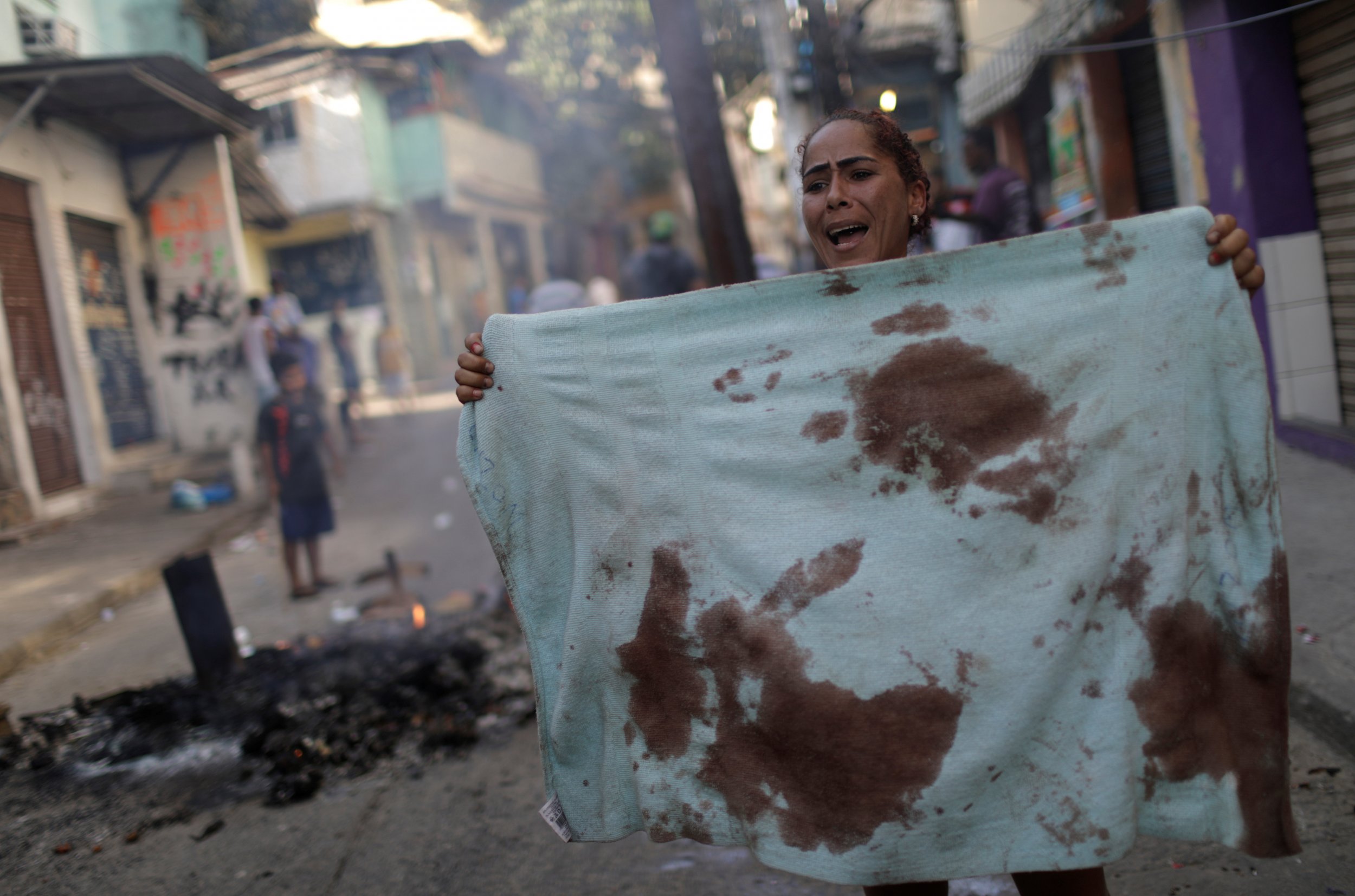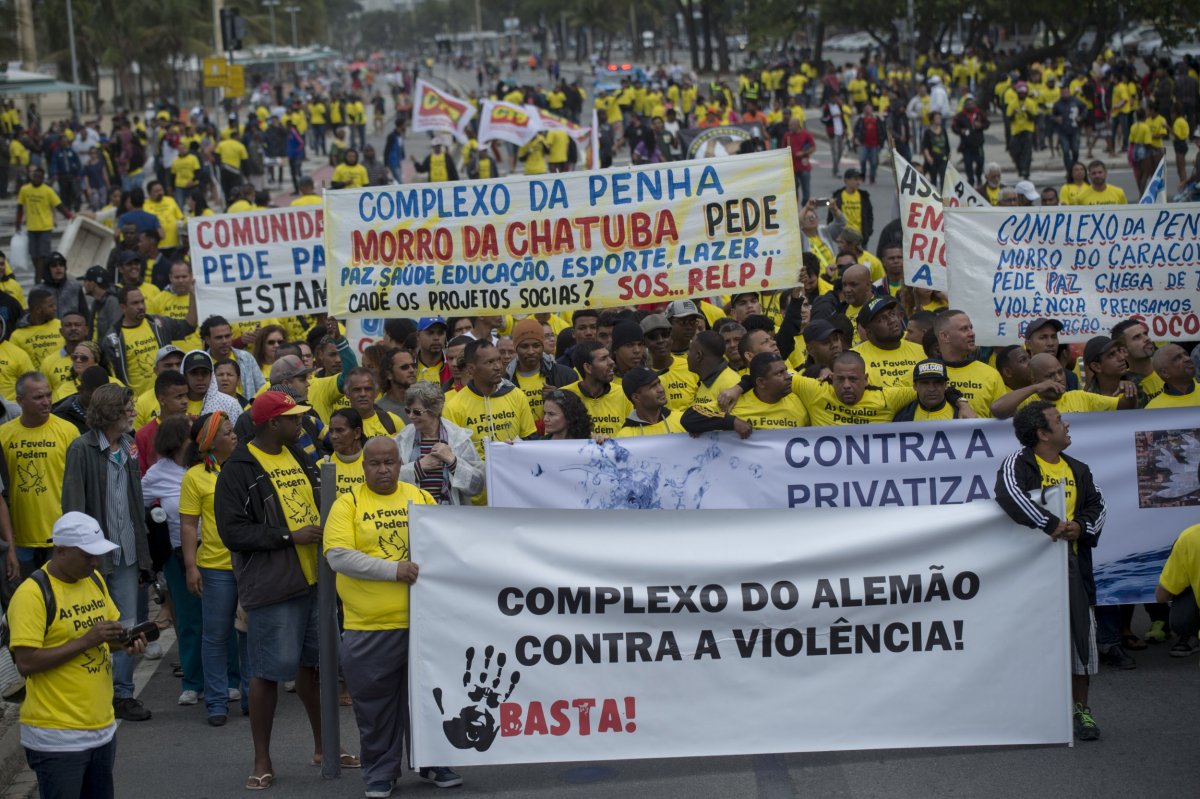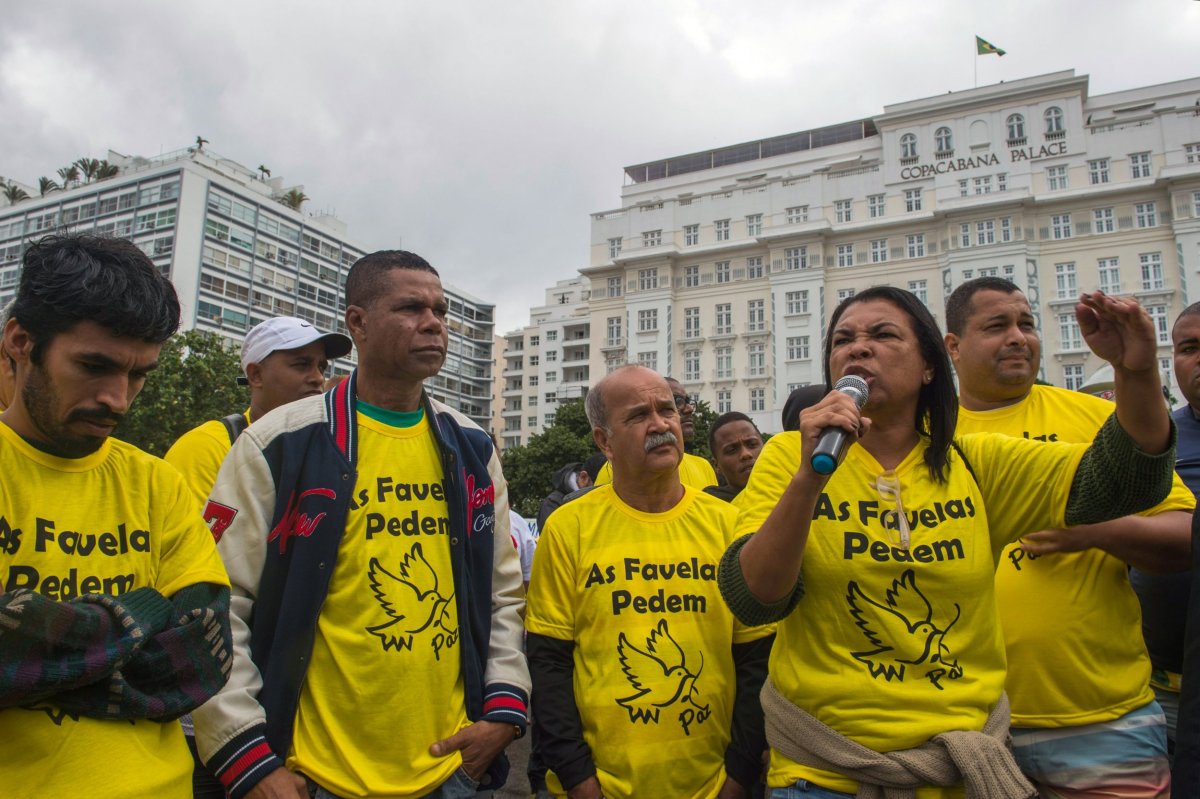
Residents of 47 poor neighbourhoods in Rio de Janeiro descended on tourist-thronged Copacabana beach on Sunday to protest a spate of deadly violence.
Hundreds of people travelled by bus from the "favelas"—a Portuguese term for Brazil's slums or shanty towns—to a meeting spot outside the 5-star Copacabana Palace hotel. Wearing yellow t-shirts emblazoned with the words: "The favelas ask for peace," they demanded an end to violence between drug gangs and the Brazillian police that often sees innocent residents caught in the crossfire.
"[The protest] is to give voice to the favelas, for the government to hear that we are suffering there. We leave the house not knowing if we will return. We were in the middle of a war between the police and criminals," Gisele Dias, president of the Morro da Providência Residents Association, told local media at the protest.

The country's ongoing economic downturn and a corruption scandal engulfing large parts of Brazil's political and business elite has all but wiped out the limited progress made in the past few years to bring peace to the favelas. Corruption scandals have engulfed local authorities too: just last week, Brazilian prosecutors issued arrest warrants for 95 police officers accused of colluding with drug gangs in Rio de Janeiro state.
With unemployment rates reaching new record highs, drugs gangs have returned to the favelas. When the police raid the neighborhoods and gun battles ensue, locals often become victims of the violence.
This is what happened to 76-year-old Maria da Conceição and her 42-year-old daughter Ana Maria Conceição two days before the march. The two women lived in the Morro da Mangueira, a favela in the northern part of Rio near the Maracana football stadium, and were killed during a shootout between the police and a criminal gang, local media reported. A bus was set on fire in protests that followed the women's deaths.
Also on Friday, a stray bullet hit a nine-month pregnant woman, Claudineia dos Santos Melo, as she was walking to the market. Doctors performed an emergency Caesarean section saving the newborn's life, but the baby, named Arthur, is now paralyzed from the neck down.
Protesters said police officers should receive better training. "They're inexperienced and treat people roughly," Sergio da Silva, a member of a community association, told Al Jazeera. "They shoot out of fear, but you can't shoot when there are children around."
Ahead of the 2016 Rio Olympics, Amnesty International denounced a spike in police killings, many of which were not being investigated. Citing official figures, the NGO renewed its concerns in May, reporting that police killings in Rio de Janeiro's favelas nearly doubled to 182 in the first two months of 2017—a 78 percent increase from a year earlier.

The violence is not only a serious security risk for residents, but impacts both health and education.
"Teachers don't want to work there because there is shooting all the time," a 20-year-old recent graduate Matheus Concesao, who is from the Ciudade De Deus favela popularized in the 2002 movie City of God, told AFP at the protest.
At least 80 police officers have also died as a result of the violence in the Rio de Janeiro alone since the beginning of the year, according to AFP.
Uncommon Knowledge
Newsweek is committed to challenging conventional wisdom and finding connections in the search for common ground.
Newsweek is committed to challenging conventional wisdom and finding connections in the search for common ground.
About the writer
Sofia Lotto Persio reports mainly on Asia and gender issues for Newsweek. She previously covered international affairs with a specific ... Read more
To read how Newsweek uses AI as a newsroom tool, Click here.








